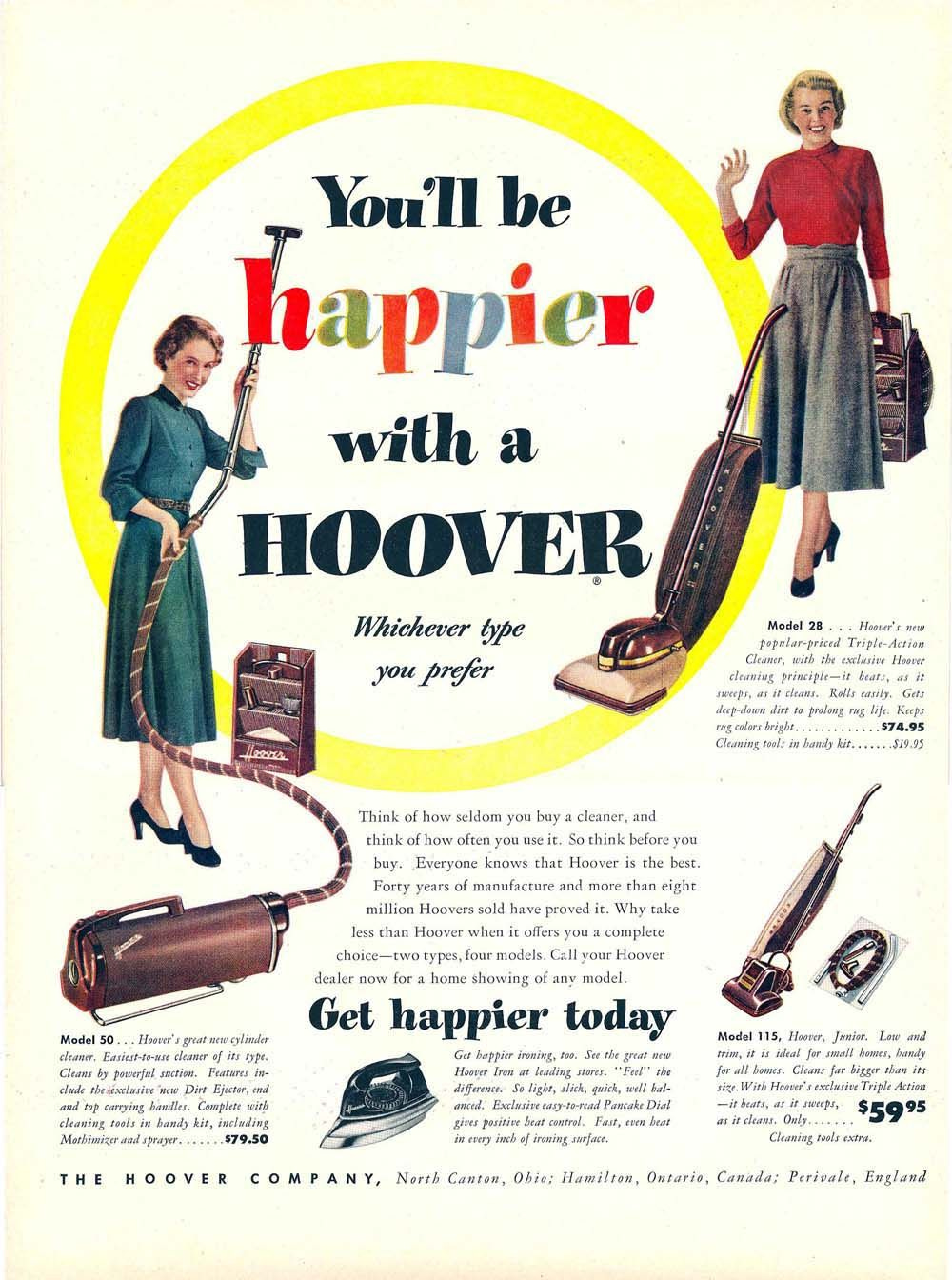Though it is estimated that money problems cause 20-40 percent of divorces in the US, I would speculate the percentage as much higher. We have become a money-obsessed civilization, yet we seldom talk openly about it. The funny part is that schools to this day center an educational spotlight on penises and vaginas, or in the case of woke schooling, the surgical mutilation of penises and vaginas in order to appease the Big Pharma grift demons. No public school bothers or has ever bothered to give tweens and teens a primer on how money can affect a marriage. When I was in a northern Illinois high school in 1989, I had to jump through hoops in order to take an elective course on doing one's own taxes. If death and taxes are inevitable, it follows that estate law and tax codes should be required to graduate secondary school to the same degree learning one's native language and Constitution is required.
The Class That Ruined Everything
The greed of the upper middle class that I grew up in is just as responsible as the fabled one percent for ruining everything. The upper middle class is utterly self conscious and utterly un-self aware. Everyone wants to be in the upper middle class, because the upper middle class deludes itself that it is the middle class and the middle class deludes itself that it is poor. The poor join the fray by desperately wanting to join the upper middle class like everyone else. As for the rich, they think of themselves as gods.
Upper middle class Boomers who once comprised the middle class signed on to forcing women into the workplace. This was done as triage when the economy began to falter in the 1970s due to cheaply available petroleum coming to a peak around that time. Like many other measures, the erasure of women's power within the home was an amorphous trend driven by unconscious drives. Driving women into the workplace had three effects:
1. It cheapened labor and kicked the can of economic reckoning down the road
2. It greatly lessened the quality of marriage and parenting for all
3. It created a Wendigo of insatiable consumerism
Women, especially white women, had a moment in the 1950s and 60s of being caught between worlds. On one side, we had the elegant, slim, beautiful, dirndl-skirted and aproned 50s housewife. Her station, although enviable in some respects, came with hard limits. Household appliances like vacuums and washing machines were supposed to be freeing, but she ended up chained to them as she rotted inside the house. Contrast the Victorian habit of delegating housework to one or more maids and skipping off to luncheon -- the 50s housewife lived a version of solitary confinement. The modern tradwife of fetishized etheric labor is a fantasy of what housework could be as portrayed by DIY Hollywood and copious phone camera filters.
Women were dumped into the workforce (many went voluntarily, of course) as a reaction to the emptiness and intellectual vacuousness of tradwifing. Betty Draper was a waste of potential and she wasn't all that fond of her children, at any rate. The result of women being put to work outside the home whether they liked it or not was the latch key kid of the 70s and 80s. I knew several of them. Nobody used to freak out when a nine year old came home to an empty house, left to fend for herself for three hours until mom and/or dad returned from work. Try the latch key arrangement out nowadays and your kid will probably end up as a foster.
A World Where Almost Nobody Has a Stay-at-Home Mom
Belatedly, someone figured out that moms are important. I had the luxury of a good mother who stayed home. The emotional comfort of knowing my sane, stable mom was there for me in the house was priceless. When I was a child, I sensed what my life would become and I chose not to have children because I knew I did not have a snowball's chance in hell of recreating the better aspects of my own childhood. I was right. The area where I grew up is dominated by boomers because they are the only ones who are entrenched enough to afford to live there. As for my childhood contemporaries, they all ran away and their parents are long divorced. This is a typical story. The dream was dead before Gen X reached puberty. Broken homes became the new normal and then the old one.
Broken homes beget broken homes. When both parents have to hustle to afford basics their own parents took for granted (on a single income, no less) such as a roof overhead, a yearly vacation, ample food and medicine, it takes its toll on a marriage. Women tend to externalize blame where men run away from it. It is easy to fall into a toxic blame game where the woman skewers the man's weaknesses as being endemic to maleness itself. Men run into the arms of someone novel and new, whether she is physical, avatar, AI, eTHOT, or porn, for the quickest remedy to etheric starvation (the endemic disease of our time) is a polar reaction with a new etheric opposite, also known as cheating. Remember that a man mates with the woman he perceives as a great etheric provider and a woman mates with a good physical provider. When a woman has to provide both etherically and physically for a man, she does not have a man; she has an overgrown child. The last thing most women want is a Baby Huey along with whatever children she may or may not already have.
The Wendigo
Every astral pyramid seeks to rule the world and one of the most insidious astral pyramids ever to seek reich status is the Power Couple pyramid. The astral ideal of this structure can be Double Income No Kids (DINK) childless or with children. In that sense, it does not discriminate. The vision itself is of a rich, good-looking, shiny happy couple, upwardly mobile and perpetually young. They are at the top of their game. They are relatable and portrayed in rom coms as Happily Ever After. They are somehow not snobs, yet in real life, they have few friends in low places. Their big house or luxury townhome/apartment sucks up massive amounts of electricity and petroleum. Their jet vacations, taken multiple times per year, squeeze the Earth as if she was a nougaty candy filled with sweet, light crude. Their constant inflow of imported Amazon Prime goodies ensures that no local business will ever be able to compete. They love to virtue signal about buying and supporting local though.
Humans being human, monetary advice rackets are the primary scheme by which power couples become obscenely wealthy using Other People's Money, otherwise known as unearned wealth. Though there are many more, two examples spring to mind of monetary advisors for whom money has become a Wendigo.
Robert Kiyosaki (born 1947) is the creator of the Rich Dad, Poor Dad media empire. He made a fortune in real estate first and followed up by amassing clout and wealth writing books about how to get rich. Kiyosaki's main claim to fame is his advice to seek money by owning and renting real estate. He urges people to save their pennies by getting an extra job, avoiding lattes, and hoarding cash until they can invest in their first income generating rental property, exploiting the fact that we all need someplace to live. The next step in the property ladder is to own an apartment building. Kiyosaki references a mysterious Rich Dad who supposedly gave him all of this great advice as he grew up in Hawaii. In January 2024, a much-sued Kiyosaki revealed he is a billion dollars in debt. Whoops.
Dave Ramsey (born 1960) is the creator of another money advice empire. Like Kiyosaki, he advocates saving pennies until the resulting hoard can be put into real estate investments. Ramsey is an evangelical Christian who unironically owns 10 million dollar homes and sells inspiring lectures about how he lost it all and made it back in the 1980s. Like Kiyosaki's biographical Rich Dad schtick, his origin story is likely 90 percent fabrication, 5 percent inspiration, and 5 percent actual truth. Ramsey seems to be a bit better loved than Kiyosaki at the moment. The whole Christian label seems dissonant. Of course I could be wrong, but I don't think Jesus approves of his flock owning 10 million dollar mansions while making jet travel money off of get rich seminars.
The secret is that anyone can get obscenely rich -- you just have to be willing to sell your soul by thinking of money all the time, day and night. Selling one's soul is not a matter of doing what is against your nature or what you are good at, either. It's better if you have talents and skills; otherwise you don't have much to sell. The common thread among all soul-sellers is the willingness to accept the slow, often unnoticeable process of corrupting, small compromises of dignity and ethics. If you buffet yourself with constant reassurances you are ethical, righteous, and upstanding, all the better. As much as selling your soul is seen in myth as an act of rebellion, it's actually an act of ultimate conformity. In our demonic age of modern materialist competition, such transfers is are barely noticeable.
A Tale of Two Misers: Hetty and Getty
Hetty Green (1834-1916) was an American financier known as the Witch of Wall Street who was infamous for her extreme thriftiness. She was born into a rich whaling family of Quakers. Showing an early aptitude for finance, Hetty bucked the traditions of her time and helped her father manage his businesses by the time she was in her teens. Hetty amassed her own fortune by her 30s -- no small feat for a woman of that era -- and married fellow millionaire Edward Green only because she was sure he wasn't after her money. Hetty spent much of her adult life battling her own relatives in court for various inheritances despite being the richest woman in the world. Though she had enough to bail out the city of New York during the panic of 1907, rumors swirled that she saved that money by ruthlessly refusing to treat her son's leg injury after a sledding accident. Her son eventually had to have his leg amputated. Rumors aside, it was a well-known fact that Green owned one black dress and likely stank because she avoided washing it (except for the dirtiest parts) in order to save on soap.
John Paul Getty (1892-1976) was an oil billionaire and art collector. Getty's parsimony was legendary. He installed a payphone in his 16th century mansion, Sutton Place, so that his guests wouldn't run up phone bills, because heaven forbid he part with some chump change putting invited guests at ease in his giant Hogwarts ogre hall. Getty was such a cheapskate that he refused to pay for treatments for his young son's brain cancer. Timothy Getty was the child of John Paul Getty and his fifth and final wife, Teddy. Timmy went blind from the tumor. Getty complained about having to pay the medical bills and then stopped paying them altogether. He was absent from his son's birth and largely did not seem to care the kid existed. The child died at age 12 of his cancer and Getty did not care enough to show up to the funeral. Later, Getty would make history again for miserliness by refusing to pay a 17 million dollar ransom when his teenage grandson and namesake John Paul Getty III was kidnapped in Italy. Citing "if I pay this time, my other 13 grandchildren will be kidnapped and ransomed", Getty Sr. refused to cough up a single dime. Five months later, after Getty III's desperate mother raised money on her own and the kidnappers mailed his severed ear to his family in a box, Getty partially relented and all parties settled for 2.3 million dollars. Getty III went back to being a druggy after his unceremonious escape/release. He overdosed, suffered a debilitating stroke, and died age 53.
Les Miserables
As a former member of the upper middle class and a current member of the lower middle class, I feel I can confidently say money isn't everything. The pursuit of class and not class itself is what makes people miserable, and miser is the root of the word miserable after all. It means wretchedness and despair. Every miser is miserable, including the ones with massive fortunes such as Getty or Hetty Green, who also specialized at making the people around them miserable.
I refuse to become a miser in the interest of gaining a bunch of unearned wealth. I reject unearned wealth because someone else had to earn it, and embracing it now means I will have to earn it later, including in my soul's future lives. When Robert Kiyosaki suggests forgoing niceties in the interest of saving enough money to become a landlord, I turn off my ears. When Dave Ramsey uses his brief sojourn to the state of financial distress as a point of leverage, I consider it to be a fib if not an outright lie. He wants us to think he's a mensch. He is desperate to appear relatable. Not for one second do I believe Dave Ramsey and his wife were in a truly desperate situation on par with what millions of Americans deal with every day. In his darkest hour, Ramsey had family, friends, and church to fall back upon. He will never intimately understand grinding poverty, even if that is ostensibly what his Bible instructs him to do in the form of voluntarily taking up the cross.
That said, you came here for financial advice and financial advice is what I shall give. Broken clocks are right twice a day. Instead of throwing out everything the aforementioned rich people have ever said and done, the first advice is salvage from Robert Kiyosaki: pay yourself first. Even if you only have twenty five dollars to your name, make sure 100% of it pays for your needs. Not your debts; you. If you have an average week, save 5% of your income in a rainy day fund. If you have a slight boon or are doing a little better than usual, make it 10 percent. If you have a windfall, make sure half of it gets put away for you. Always prioritize yourself with your money and save for a rainy day by paying yourself first. Ignore everything else Kiyosaki says because he is most likely lying, fibbing, or wrong, especially when it comes to his advice about buying real estate for fun and profit.
The second piece of advice comes from Dave Ramsey: pay your smallest-balance credit card off first and then throw your energy into paying off the rest of them. Paying off a small balance is obviously easier than paying off a large one and by doing it you'll give yourself encouragement to keep going. Keep a budget, potentially a cash one where you allocate money for things in jars. Other than that, Dave Ramsey's advice needs to be heavily scrutinized and filtered. He obviously does not live the frugality he preaches and is the real estate version of a televangelist preacher.
The third piece advice comes from Hetty Green: "buy low, sell high". Buy stuff when nobody wants it and wait until it is worth lots, then sell sell sell. This lesson can also be gleaned by watching the movie Coming To America. Don't be like Hetty Green and spend your life chasing inheritance money. Don't divorce your husband for being a financial spazz when you've come to the rescue of bankrupt-ass New York City. Also, buy more than one outfit and wash your rotating wardrobe with plenty of soap.
The fourth piece of advice comes from John Paul Getty, and that is DO NOT BE LIKE JOHN PAUL GETTY. His fortune may have come from oil but I'll bet it continues due to those tunnels underneath his museum. The guy was gross; he was the real life Mr. Burns. Speaking of burns, may he burn in hell.
Weird and Wacky Ways of Generating Wealth
Overall, my best advice for staying afloat is to stop patronizing the Avatar. No, I'm not talking about James Cameron's blue race or The Last Airbender: I'm talking about that image of ideal self we all carry around within us. Fantasy Avatar Kimberly has straight, uniformly-colored teeth. Her knees are graceful and elegant instead of chubby and full of rippled cellulite like mine. Avatar Kimberly has a spacious four bedroom house in an exclusive neighborhood. Her house has a guest room, a library room, and a sitting area. The real Kimberly does not have a washer dryer -- Avatar Kimberly has both of those, and on the main floor to boot. In order for the real Kimberly to match Avatar Kimberly's lifestyle, she would have to get her hands on a fortune. I'm sure Kiyosaki's and Ramsey's successors would be happy to sell me a seminar... Don't indulge the Avatar. Look at your humble self and refuse to buy into the ideal image that would have you purchase the world and lose your own soul. You are not your image -- the body is temporary. If you have the benefit of youth, it's not going to last, so don't try to prolong it. Accept your real and plain self and don't go to extraordinary lengths to match it to the Avatar. Also, keep in mind all advertising is pushing you towards the Avatar via consumption of its products.
I'm not Avatar Kimberly or anything close, but I do manage to keep a roof overhead and enjoy the occasional latte at my neighborhood coffee shop. In my mind, which is all that matters, I am rich. I am rich because I am mentally and physically healthy. Health is wealth, my friends, and if you don't believe it, consider the example of the billionaire who is so disabled, he cannot drink his $400 champagne unless he has a straw and the help of a nurse aide. I stay healthy by avoiding doctors and mostly eschewing their advice. I force myself to do moderate exercise every day without a gym membership: jumping jacks, push ups, and squats. I walk local trails whenever possible. I pay attention to my body and when it gets out of whack, I address it with diet, supplements, and herbs. I avoid etheric starvation by exposing my spleen area (underneath the heart, basically the rib cage) to direct sunlight and by making homemade food.
Here's some odd advice that you won't hear anywhere else: if you want to make and keep money, clean your toilet everyday. Get out the paper towels and make that latrine sparkle and shine. Call it superstition if you must, but cleaning the toilet with the image of having a comfortable amount of earned wealth brings money and health. Cleaning the toilet every day appeases both local and universal spirits. Ancient Greeks did it to please Venus Cloaca and modern day Japanese do it to honor Ususama-myoo. Soichiro Honda, founder of Honda, Matsushita Konosuke, founder of Panasonic, and film director Takeshi Kitano were/are all daily toilet cleaners. The secret is to clean the toilet without fail while preserving the magical image of yourself cleaning your own toilet despite being extremely successful. Combined with drive, vision, diligence, and hard work, toilet cleaning is the easiest way to get divine and semi-divine help to further your material goals and ambitions.
When work dries up or when you are in the need of extra help, do a green candle spell to bring earned money. Aphrodite helps those seeking earned wealth, so in my case, I burned a green candle atop a green jar filled with some bits of frankincense and myrrh for six weeks starting on a new moon while playing the Orphic Hymn to Aphrodite. Personally I used the green candle spell kit from Lucky Mojo to great effect. The spell was so successful, I had to ask the gods to slow it down a bit because I didn't have time to do all the work being thrown at me.
The great secret to all wealth -- and I am talking real wealth, not the kind that Getty and pals tend to amass -- is generosity. If you are a miser and hoard everything you get while obsessing about how to get more than you need, that will be your karma. You will have lots of material things and you will awe others who devote themselves to the chase of material things. You can be the sort of person Getty disdained and laughed at, giving away whatever you can spare and even much of what you cannot, and the weirdest thing will happen: you will always have enough. The hidden law of generosity is that the generous will always be taken care of by the Divine. Generous people have the kind of satiety money cannot buy. A wandering deity once shared with me that generous acts sublimate everything they touch to the power of seven, including those who made the generous act. Generosity improves.
On the opposite end, miserliness degrades all it touches to the power of seven. As if trying to prove that point, Getty's family was/is a disaster. His fortune was apparently cursed. Every woman who married that sociopathic bastard lived to regret it, and it is likely the Getty fortune will curse the seventh son of the seventh son. And don't tell me about rich people's philanthropy: we all know they use "charity" as a scheme in the same way Getty used art: to launder money. There are very few überrich who actually give it away, and those who do seldom do it in secret... gotta have that virtue signal. Money given away with an agenda is not the same as wealth given from the heart. Poor people donate to charity more often than rich people because they know how much it hurts to be poor and how much difference a little bonus can make.
I know plenty of people who have more money than I do -- in some cases, a great deal more -- who are miserable because they don't know how to be genuinely grateful or generous. Better to die penniless because you gave your last cent to someone you believed needed it more than you than to live a hundred years as a rich miser. To the rich misers and rich miser wannabes out there... it's never too late to say Thank You and give it away in liberal amounts to the needy. Try it... it feels good, and it won't make you as poor as you think.








Good article. You're absolutely right - money is supposed to be spent. Yes, it's good to save enough to have for when God gives us a surprised and have a 'rainy day fund' as it were, or save for a specific purpose.
But, to have mountains of case? That's obscene. Or the Ramsey and Kiyasaki's ideas of becoming real estate moguls? No; land and houses are meant to be lived in. They're meant to be owned. Yes, there's a place for renting and all, but our nation is predatory upon renters right now, and extracts their wealth, sucking them dry.
Much better for one's soul to build up beauty and community, living a simple life.
Bit of a tight month with money myself, but that article was excellent. Loved it 😁